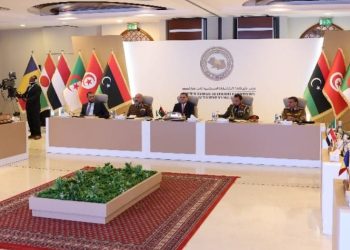By Ajnadin Mustafa.
Tunis, 22 October 2014:
For displaced Libyans families living in Tunisia as the school year began last month, there have . . .[restrict]been many viable options for schooling for their children.
There are five Libyan schools in the country. Before the current crisis there were three—one each in Tunis, Sfax and Hammamet. This year two more opened in Mahdia and Nabeul.
All follow the Libyan national curriculum and attempt to maintain the same schedule and syllabus as schools inside Libya so that students leaving or rejoining the Libyan education system do not fall behind. For the last two years schools in Tunisia have been overseen by the Libyan Ministry of Education which also funds the education of all Libyans who attend them.
The Libya Herald spoke to Mohamed Hassan, headmaster of one of the schools, located in Tunis, near Al-Pastor Square in the diplomatic area. It was opened about a decade ago for the children of Libyan diplomats, businessmen and others working in Tunisia.
Prior to 2011, according to Hassan, the number of students was fairly low. After the revolution, however, enrollment rose to nearly 300. This figure began to decline after the revolution, as displaced Libyans began returning home. Last year the roll had fallen to just 185 students.
This year, with armed conflict in western Libya driving many Libyans across the border into neighbouring Tunisia, enrollment at the school has swelled dramatically to 415 pupils. Te result of the overcrowding is that it now has to operate in shifts. Secondary school students attend in the morning from 7:30 am to 1:00 pm. Years 1-6 attend in the afternoons from 1:00 pm to 5:15 pm.
According to Hassan, the number of Libyan students in all five Libyan schools in Tunisia has passed 1,800. The pupils are from all over Libya, though the overwhelming proportion is from Tripoli, Warshefana and Zintan.
Headmasters have been told by the Ministry of Education to accept students even without school records, so long as they have a passport. “We will place a student in a certain class or level, based on the word of the parent,” said Hassan, “We are trying not to make it too difficult for these students”.
If the children wish to return to Libya after a month or two, the school does its best to send them on with proper paperwork, accredited by the Libyan embassy, which shows their results during their time in Tunisia. This performance is then added to their results during the remainder of their school year back in Libya.
Some of the children have psychological problems or educational short-comings. The schools try as much as possible to address these, even bringing in outside support staff, including psychologists.
They also provide extracurricular activities. Last year the school in Tunis organized a field trip for the kids and their families in an attempt to bring the community, with all its different viewpoints, together. The trip, said Hassan, was to an area of great natural beauty and included a communal lunch.
“It was a beautiful day together,” affirmed Hassan, “in which everyone had the opportunity to get to know one another and to see that we are all one Libyan community, that we are family and that we must work together for the good of Libya.”
Teachers at all the schools are a mix of Libyans and other nationalities, including Tunisians. “We cannot ignore the good treatment we have received from our neighbours—the Tunisian people—and their solidarity with us in the midst of our plight,” said Hassan.
He added: “I would like to thank the Prime Minister of Tunisia and the Minister of Education for their recent announcement that Libyan students will be accepted into Tunisian schools tuition-free and treated as Tunisians. The Tunisian schools have also been instructed to waive the usual requirements of certificates and other official school documents. This was done to show solidarity with the Libyans during their time of crisis”.
Hassan ended the interview because he needed to travel from the capital to the Tunisian town of Sousse to attend the funeral of one of his Libyan teachers who had died there in an car smash. “Her husband is injured and her family is not able to come for the funeral because they are from the south of Libya and of course there are no flights now”. [/restrict]









